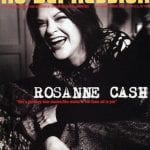Drunk Stuntmen – Barroom Blitz
“We don’t really know this song, but we’ll give it a try, since someone said they wanted to hear it,” acquiesces Steven Sanderson, frontman for Massachusetts band the Drunk Stuntmen.
He’s hoping to fool the crowd at the Brewery nightclub in Raleigh, North Carolina, into modest expectations, but the odds are stacked against him. Most of the few dozen folks who have ventured out on this chilly January night are regular hangers-on at Sadlack’s, the bar anchoring the other end of Hillsborough Street, where the Drunk Stuntmen have levitated the back-porch picnic-tables many times.
So it’s no surprise when they launch into Thin Lizzy’s “The Boys Are Back In Town”. Sanderson is on fire, strutting and kicking and commanding the stage from the moment he sneers the opening line: “Guess who just got back today…” Grizzled guitarists Terry Flood and Freddy Johnson flank Sanderson on either side, delivering dead-on echo-chants in the chorus, then slamming down the stinging two-guitars-in-harmony solo during the instrumental section.
Behind them, bass (J. Scott Brandon), drums (J.J. Connell) and keyboards (Scott Hall) drive it all home, leaving no doubt that, uh, well, yes, they do really know this song. Maybe better than even Thin Lizzy ever did.
But that’s just one high point in a set littered with blistering performances. Though their covers — which also often include Skynyrd’s “Saturday Night Special” and Willie’s “Whiskey River” — help to define the band’s aesthetic, the Stuntmen have also begun to build up a respectable repertoire of originals.
Their new album, Iron Hip, testifies to that. From the straight-shooting opener “Downtown” to the dramatic ebb-and-flow of “Low” to the instantly catchy pop of “Out Of Bed” to the powerful balladry of “Stars”, Iron Hip represents a significant step forward in songwriting from the band’s first two records. It may be a lost cause, however, for the Drunk Stuntmen ever to capture in the studio the sheer energy and charisma that radiates throughout the room when they’re onstage.
They weren’t always this good — though it took them awhile to realize that. “We had the hugest egos,” Sanderson says, recalling the band’s mid-’90s origins. “We were so stupid — we sucked. And we felt we were great. We expected to be on MTV the next day, for the first three years of this band. And it was such a hideous joke.”
The rest of the band, gathered around a wooden table at Sadlack’s the day after the Brewery show, gradually bubbles into a crescendo of laughter at Sanderson’s rant, confirming concurrence with his assessment. “Frankly, we weren’t worthy of touring, musically,” Flood offers, explaining why the band stuck to its home Northampton turf in those early days. “I’m glad we didn’t get on the road until we got our shit together. It took us awhile; there were a lot of loose ends, and we didn’t know where the hell to go with them.”
At the heart of the problem was a fundamental identity crisis. In its early days, the group — originally called Soup — had more of a jam-band persona. Eventually, a mix tape from a friend, an ill-fated cross-country tour and a supposed side-project dalliance led them in a different musical direction. But first, a little back-story — and, indeed, it stretches quite far back.
“Terry was a substitute teacher in our high school,” Sanderson says, retelling a tale about how he forged a note to get Flood to let him out of class so he could go hang out with Brandon, a high school buddy, in their southeastern Massachusetts hometown of Taunton.
A few years later, Flood and Sanderson’s paths crossed again, when Sanderson was working at Boston’s famed Bull & Finch Pub (the place “Cheers” was modeled on) with Flood’s girlfriend. “That’s where I really met him, as someone other than a student with a forgery,” Flood quips. “We started playing together after he got outta work at the bar. And I talked him into moving out to western Mass., where I was moving the following fall.”
Sanderson subsequently convinced Brandon to quit his pancake-house gig and join them in their relocation to the Northampton area. Flood, meanwhile, brought in Johnson, an old college pal who had a band that Flood had auditioned for. “Which was called,” Johnson cringes, “Spin Doctors. We thought, ‘Nobody else is ever gonna use this name!’ We eventually changed it to the Electrical Banana.”
In western Massachusetts, they began playing gigs under the name Soup. “We were playing in the key of rock,” Flood says. “We did not know exactly what the hell we were doing, but we knew if we did it long and hard with a lot of rhythm, hippies would dance.”
“We’d offer promotions such as, If you bring a drum, you can get in for free,” Johnson jokes.
“Most of those songs weren’t songs at all,” Flood continues. “They were just excuses to have a solo.”
“It could make your ears hurt, though,” Sanderson adds. “We were probably the loudest freakin’ jam band I’ve ever seen in my life. We weren’t your average jam band.”
“Nope, definitely not,” Flood agrees. “In fact, we grew to dislike them, because of ourselves.”




